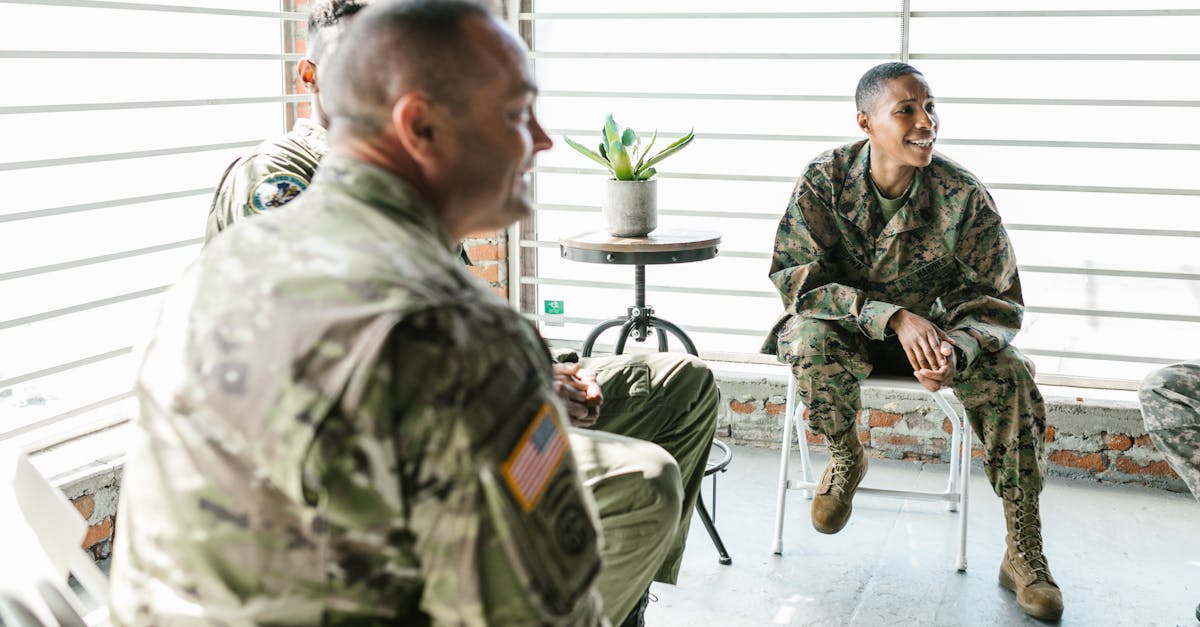
Exploring Online Forums and Discussion Boards
Exploring online forums and discussion boards can be a valuable way to find local support groups in your area. These platforms provide a space for individuals to connect with others facing similar challenges and seeking support. By actively participating in online discussions, you may come across recommendations or information about local support groups that offer services such as group therapy.
It is important to engage in these online forums consistently to build relationships and trust within the community. By sharing your own experiences and seeking advice from others, you may gather valuable insights about different support groups in your locality. Remember to always verify information provided on these platforms and reach out directly to the support group organisers to inquire about their services and whether they offer group therapy sessions.
Engage in Online Forums to Connect with Individuals in Local Support Groups
Exploring online forums and discussion boards is a valuable way to find local support groups. These platforms offer opportunities to engage with individuals who are part of support groups in your area. By actively participating in these online communities, you can connect with like-minded individuals who may guide you to relevant support groups that cater to your needs, whether it be for mental health, addiction recovery, or other support services. Group Therapy could be one of the many resources discussed in these forums, providing a wealth of information and insight on local support group options.
Engaging in online forums can also provide a space for individuals to share their experiences with different support groups, giving you a firsthand account of what to expect. These platforms are not only informative but also offer a sense of community and understanding, essential components for those seeking support. Through discussions and interactions in online forums, you can gain valuable recommendations and insights that may lead you to the most suitable Group Therapy in your local area.
Inquiring at Places of Worship
Places of worship are often a valuable resource when it comes to finding local support groups. By visiting churches, temples, or mosques in your area, you may be able to obtain helpful information about existing support groups that cater to various needs. Many religious institutions are involved in community outreach and may be able to connect you with groups that focus on mental health, addiction recovery, or other relevant topics. These groups may include counselling services, group therapy sessions, or other forms of support that could benefit those in need of help or guidance.
Reaching out to your local places of worship can be a discreet and effective way to gather information about support groups that may be otherwise unknown to you. Religious organisations often maintain a network of resources to assist their community members in times of need, including access to group therapy sessions facilitated by experienced professionals. Whether you are looking for a support group for yourself or a loved one, seeking assistance at places of worship can lead you to valuable resources that promote healing and personal growth.
Visit Churches, Temples, or Mosques for Information on Support Groups
A great way to find information on local support groups is by visiting churches, temples, or mosques in your community. These places of worship often have resources and connections to various support groups catering to different needs. By engaging with the community and asking for information at these religious institutions, you may come across support groups that offer services like counselling, group therapy, or other forms of assistance that could be beneficial to you.
Religious centres are known to be welcoming and supportive environments where individuals can seek guidance and find solace. Don't hesitate to reach out to the staff or leaders at these places of worship to inquire about any available support groups in the area. They may have information on groups that focus on mental health, addiction recovery, grief support, or other specific challenges that you or someone you know may be facing. By tapping into these networks, you can discover valuable resources and potentially find a local support group that meets your needs.
Contacting Local Mental Health Hotlines
Contacting local mental health hotlines can be a valuable resource for individuals seeking information on support groups in their area. These hotlines are staffed by professionals who are trained to provide assistance and guidance to those in need. When reaching out to a mental health hotline, don't hesitate to express your interest in joining a support group or participating in group therapy sessions. The operators are there to help connect you with the appropriate resources and make recommendations based on your specific needs and preferences.
Hotlines can offer crucial information about local support groups that cater to various mental health issues and concerns. Whether you are dealing with depression, anxiety, trauma, or any other mental health challenge, the operators can provide insights into the availability and types of support groups in your community. Taking the initiative to contact a mental health hotline can lead you one step closer to engaging with a supportive community and finding solace through group therapy sessions tailored to your requirements.
Reach Out to Hotlines for Assistance in Finding Nearby Support Groups
When looking to find a local support group, one effective avenue to explore is by reaching out to local mental health hotlines in your area. Mental health hotlines are staffed by professionals who can provide valuable information on nearby support groups that cater to various needs and issues. By calling and speaking to a hotline representative, you can get guidance on how to connect with these groups and join sessions such as group therapy.
Hotlines often have a database of resources and can assist you in locating support groups that align with your preferences and requirements. They can offer suggestions on groups that focus on specific conditions, such as anxiety or depression, or those that concentrate on particular demographics like youth, seniors, or veterans. By utilising the resources provided by mental health hotlines, individuals can access a wealth of information and support to find the most suitable local support group, including options for group therapy.
FAQS
How do I know if a local support group is right for me?
It's important to research and explore different support groups to find one that aligns with your needs and preferences. You can attend a few meetings or events to see if it feels like a good fit for you.
Are local support groups confidential?
Local support groups typically have confidentiality guidelines in place to ensure that members feel safe and comfortable sharing their experiences. However, it's always a good idea to clarify the confidentiality policy with the group facilitator or organizer.
Can I join a local support group if I'm not comfortable sharing my personal experiences?
Many local support groups offer a safe and supportive environment for individuals who prefer to listen and learn from others without necessarily sharing their own stories. You can participate at your own comfort level.
How can I contribute to a local support group?
You can contribute to a local support group by sharing your experiences, offering advice or support to other members, volunteering to help organize events or activities, or simply being a supportive presence for those in need.
Is it necessary to disclose personal details to join a local support group?
While some support groups may require basic information for registration purposes, you are not obligated to disclose any personal details that you are not comfortable sharing. It's important to prioritize your own boundaries and comfort level in a support group setting.
